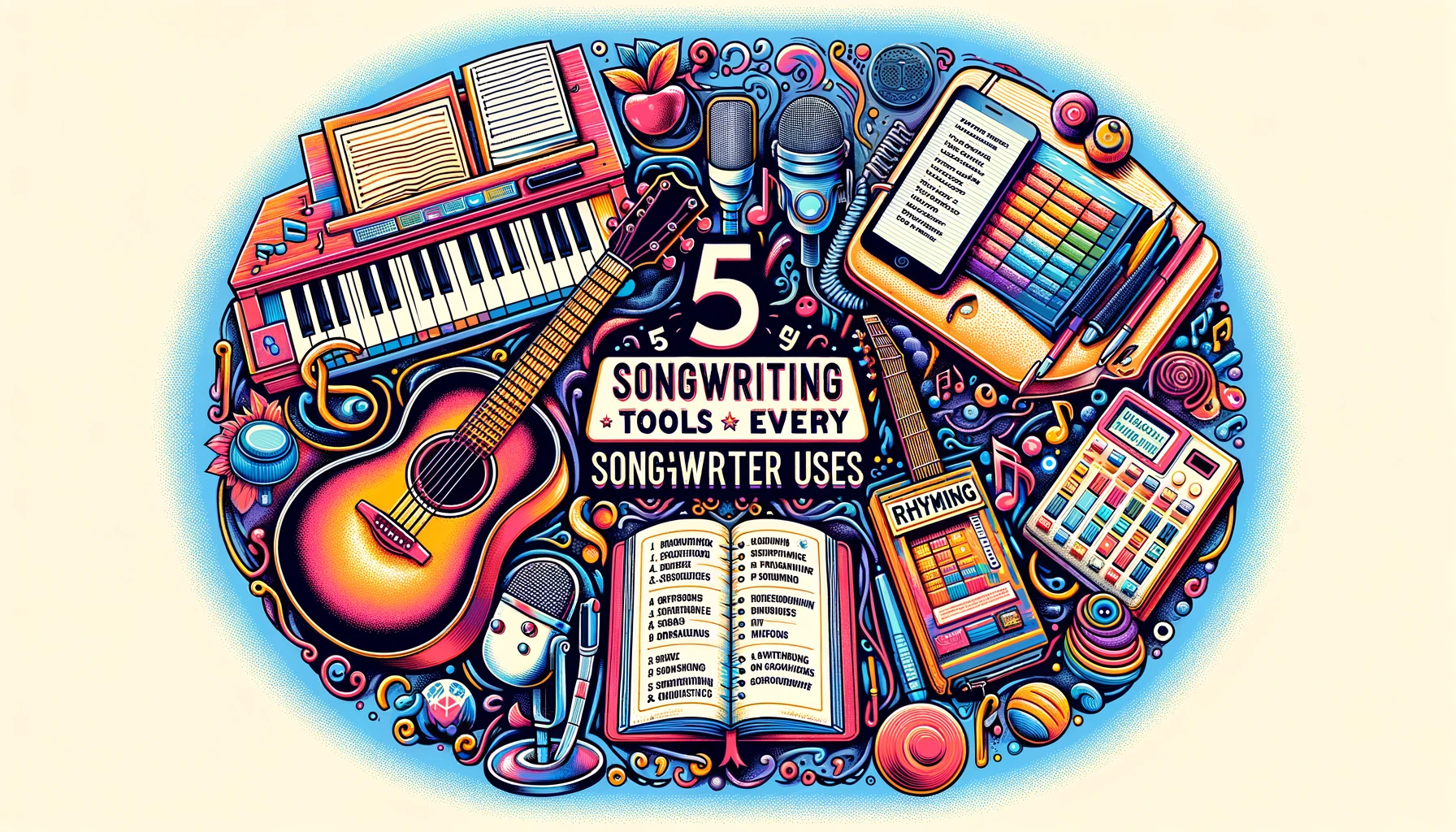Songwriting is not just an art; it’s a craft that requires the right set of tools to bring creative ideas to life. While talent and inspiration play significant roles, the tools a songwriter uses can greatly enhance the creative process, making idea generation, composition, and execution more efficient and effective.
Tool 1: A Notepad and Pen
The classic combination of a notepad and pen remains an essential tool for songwriters. This timeless duo serves as the initial canvas where spontaneous ideas, lyrical snippets, and song concepts are first captured. The tactile act of writing can help in the free flow of thoughts and is easily accessible anytime, anywhere, making it invaluable for capturing inspiration in its rawest form.
Tool 2: A Digital Audio Workstation (DAW)
In the modern music-making landscape, a Digital Audio Workstation (DAW) is indispensable. Programs like Ableton Live, Pro Tools, or Logic Pro allow songwriters to compose, record, and arrange music with remarkable flexibility and control. A DAW is a powerhouse tool that supports the creative process from the initial idea to the final production, enabling the integration of various musical elements with ease.
Tool 3: A Rhyming Dictionary or Thesaurus
A rhyming dictionary and thesaurus are crucial for refining lyrics. These resources help songwriters find the perfect words to complete a line or express an idea more vividly. Tools like RhymeZone or even traditional books can inspire creative wordplay, ensure lyrical flow, and enhance the emotional impact of the songs.
Tool 4: A Recorder or Voice Memo App
Melodies and rhythms can come to mind at unexpected times. Having a recorder or a voice memo app on a smartphone ensures that these fleeting moments of inspiration are not lost. This tool is essential for capturing hums, melodies, rhythms, or even verbal ideas that can later be developed into full songs.
Tool 5: An Instrument
Whether it’s a guitar, piano, or any other instrument, having a musical instrument at hand is fundamental for songwriting. It serves as a tool for composing melodies, testing chord progressions, and structuring songs. The instrument is a songwriter’s companion, facilitating the translation of abstract ideas into audible reality.
Conclusion
The synergy of traditional and modern tools equips songwriters to navigate the complexities of song creation. From the simple act of writing down lyrics to the intricate process of music production in a DAW, these tools form the backbone of the songwriting craft. Embracing these tools can enhance a songwriter’s ability to express ideas, experiment with sounds, and ultimately, craft songs that resonate with audiences.
